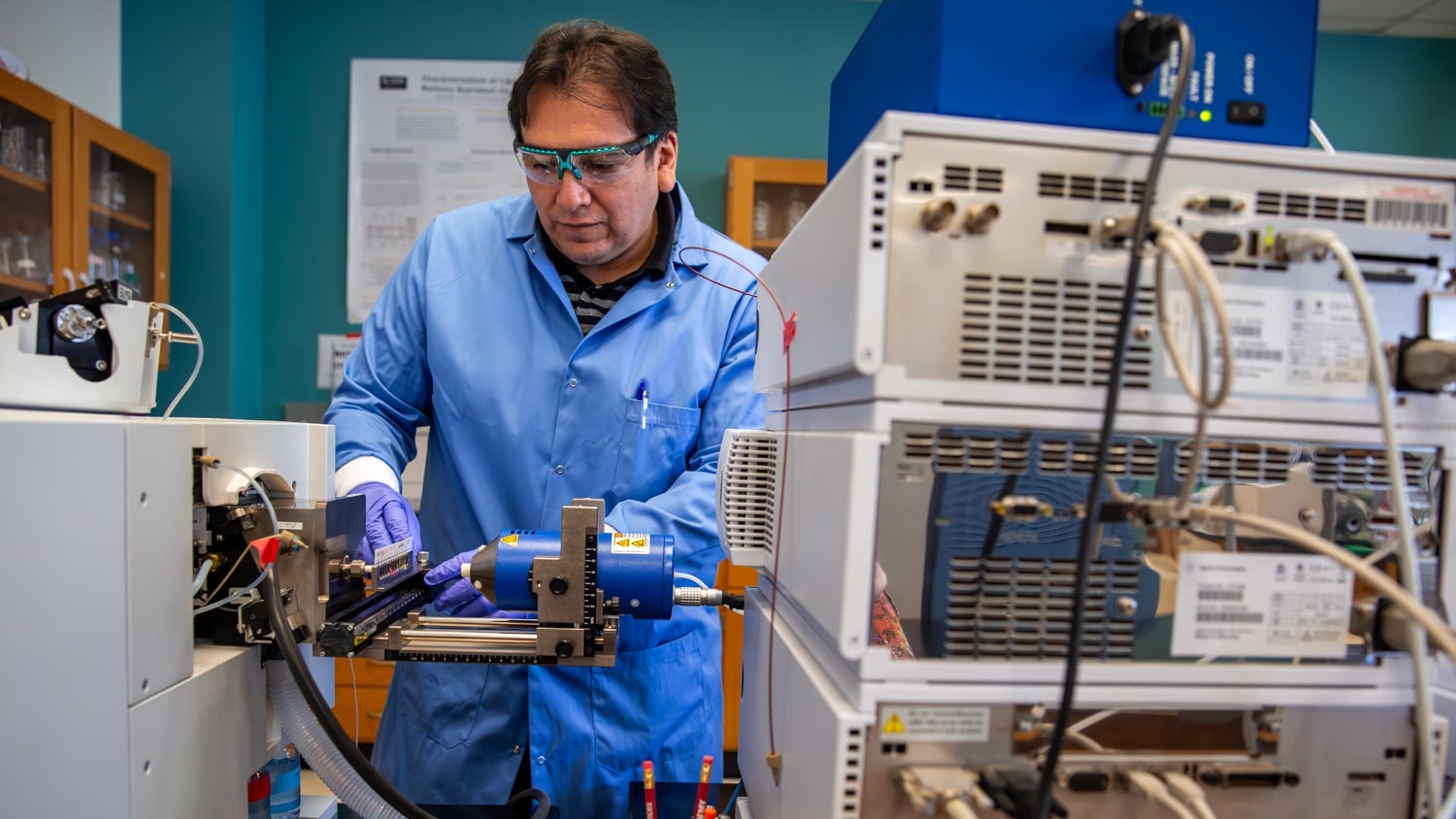Meet Staff Senate Chair
Steve Carlton takes his role to protect and serve NC State seriously in his roles as crime prevention officer and chair of the Staff Senate.
Carlton, who earned an English degree from NC State in 1999, uses his communication skills daily with groups across and off campus. He’s eager to raise the profile of the Staff Senate and share helpful information with co-workers. Carlton sat down with the Bulletin to talk about the Staff Senate’s goals and opportunities to get involved.
1. What does the Staff Senate do for employees?
The Staff Senate acts as an avenue for staff to have their concerns heard by a representative body. We have senators from all units of campus, both SPA and EPA nonfaculty, and we work toward a common goal of making the voice of staff heard by university administrators, faculty and students.
We also try to provide resources for staff, such as links to useful university Web sites, a computer loan program and updates on changes in areas such as the university budget and the State Health plan. Ultimately, the Staff Senate serves as an advisory body to the chancellor.
2. What are the major issues Staff Senate plans to work on this year?
Our first goal is to educate staff as much as possible on university processes, such as budgets and human resources concerns like the State Health Plan, so that they can make decisions in their workdays that better benefit them and their given unit.
We also are trying to enhance communication between all community groups on campus, whether student, faculty, staff or university administration, so that everyone is on the same page in working toward the mission of the university in the most cohesive way possible. Another goal is to make sure that all staff on campus and in extension areas have the opportunity to represent their fellow staff members as senators, and that all staff are aware of what the Staff Senate provides for them. Increasing efficiency of communication with improved access to information technology is yet another goal.
Finally, we would like to help improve the morale of all university community members in times of economic crisis.
3. How can staff members get involved with the senate?
All regular Staff Senate meetings are open to the public, and are held at 10 a.m. on the first Wednesday of each month in the Talley Student Center Walnut Room. Employees can also e-mail the Staff Senate through our Web site if they have questions or concerns, or they can go directly to their senator and ask in person.
The best way for a staff member to get involved with the Staff Senate is to attempt to get elected as a senator. We hold elections every year in the spring, and senators serve for a term of two years, with no limit on the number of terms that a person can serve. We previously have sent out paper nomination forms to all campus boxes, but we are trying to transition to electronic elections this year. Paper forms will still be available if requested.
4. How do you balance your crime prevention responsibilities with Staff Senate work? Are there any similarities in the type of work?
It is definitely a challenge balancing the duties of Staff Senate with my responsibilities as a police officer. But like I tell my fellow senators, the job that we are hired to do is our priority, and Staff Senate comes second. The Staff Senate has a very dedicated secretary in Nancy Phillips, so we are very fortunate that she is able to handle many of the daily tasks.
Most senators are happy to volunteer their extra time, and I have the benefit of working under a supervisor who has previously been a chairperson, so he knows the challenges associated with it. My work hours are very flexible, but that also means that some days I could be at work from 8 a.m. until 10 p.m. Utilizing efficient methods of communications, such as e-mail, texting and videoconferences, have been extremely helpful in keeping up with all of my work.
Communication is probably the one main similarity between my job and the task of Staff Senate chair. There is always so much information to share, so efficient (and effective) communication is the key to getting it across. It is true, knowledge is power, and I would like to see the whole NC State University community empowered with as much knowledge and information as possible, so that we can make the most positive impact.
5. What has been your best moment as chair?
I think my best moment as chair of the Staff Senate was being involved with the Chancellor Search Committee during the public forums in August 2009. I listened to fellow staff members voice their concern for what they would like in a new chancellor, and their points were all focused on what would make NC State University better as a whole, not what might benefit them personally. It was then I realized for sure that the staff of NC State have the best interests of the university in mind.
My next best moment as chair would be seeing the results of the State Employees Combined Campaign, and seeing that more people participated and donated more this past year than the year before, despite their economic difficulties.
- Categories:


